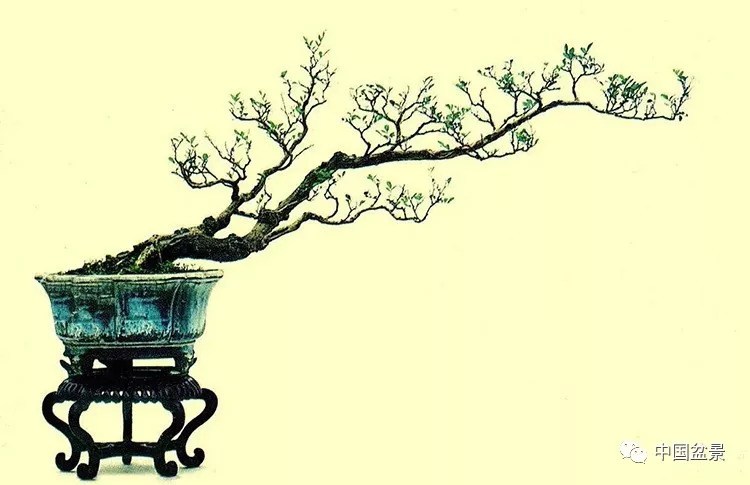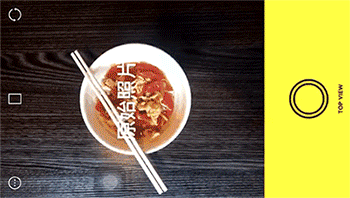Embarrassed to send ta carnations, but picked the wrong color.

Every Mother's Day, filial piety will certainly prepare a handful of carnations for your mother to express your wishes. In fact, since the establishment of Mother's Day in 1913, carnations have symbolized maternal love for no more than a hundred years.
Ann Reeves Jarvis, an American woman, selflessly helped many poor mothers during the American Civil War, and Mother's Day was established in memory of her and other unknown mothers who contributed. American folk regard Jarvis's favorite white carnation as a symbol of the greatness of maternal love, and then this trend has spread all over the world.
Carnation is the transliteration of carnation, which originated from "coronation" and also from the Latin "carn", because wild carnations are mostly pink to fleshy. Although the name is full of foreign style, other people's official Chinese name is very plain and clean, and it is called "carnation".
Wild carnation. Is it different from the carnations you saw in the florist? Picture: Zeynel Cebeci / wikimedia
Sacred flower
Carnation (Dianthus caryophyllus) is a type species of Carnation in Caryophyllaceae, which is native to the Mediterranean coast. It has a long history of cultivation and can be traced back to more than two thousand years ago.
The calyx of carnation is cylindrical, and the edges of the Obovate petals are serrated, which looks like shavings left when sharpening pencils.
A more common variety of carnations. Picture: Yakovlev Sergey / wikimedia
The name Dianthus of the genus Dianthus was first coined by the ancient Greek scholar Theophrastus. Its etymology comes from the Greek words dios (sacred, also refers to Zeus) and anthos (flowers), so it is "flowers dedicated to Zeus". The fragrance of carnation is suitable and is often used in the production of sacred crowns to give to the warriors who win the championship in competitive competitions.
Carnations and religion are also inextricably linked. Christians believe that the Virgin Mary wept during Jesus' crucifixion, and the tears dripping to the ground grew carnations, so carnations are regarded by Christians as the flowers of the Holy Spirit. Islam forbids idolatry, so people or animals are rarely seen in the decorative texture of mosque buildings, but geometric patterns of grass flowers are still allowed, and carnations are often seen on them.
Mosque lamps (mosque lamp) with carnations and hyacinth patterns. Picture: iznikclassics.com
A plant with a similar name to carnation is Dianthus chinensis, a traditional flower cultivated and ornamental in China since ancient times. Carnation gets its name from its branches, which grow up one section after another, but are somewhat similar to bamboo knots, except that the stems of carnation are more delicate and fragile, and can be broken easily. The fragrance of carnation is not as rich as that of carnation, and the flowers are not as complex and gorgeous as the latter.
Carnation petals also have serrated edges. Picture: Jjw & James Sowerby & William Curtis / wikimedia
Don't send the wrong color.
The wild carnation blossoms are single, even with a monotonous pink peach (such as the first picture), which is very different from the carnations on the market now. At present, as a mainstream cut flower, carnations have been bred into gardening varieties with various postures and colors, while as early as the 17th century, horticulturists in Britain and the Netherlands have cultivated more than 300 varieties of carnations, more than the varieties of rose at that time.
The flower shapes of carnations range from single to double, and there are also red, white, purple, yellow and green colors. There are dozens of different shades of red alone. At the same time, the patterns on the petals are also different, some varieties have irregular spots on the petals, and some have a ribbon on the edge, which forms a strong contrast with the petals, which is called "edge".
Horticultural varieties of carnations of all colors. Picture: Kenraiz & Dezidor & Pagemoral & Lmbuga / wikimedia
Nowadays, thanks to greenhouse cultivation, we can buy the most beautiful fresh cut carnations all the year round. Different colors of carnations represent different meanings, and they have different meanings in different countries and different occasions, so you might as well understand it and avoid embarrassment caused by mistakes.
For Mother's Day, pink or bright red carnations symbolize hot and warm maternal love, if the mother is no longer alive, it is suitable to wear white carnations; light red carnations represent admiration, purple carnations mean capricious, striped carnations represent rejection and regret, yellow carnations represent depression Green carnation, a symbol of homosexuality, was first worn by Oscar Wilde, a famous Irish gay writer, and became popular. Of course, if it is usually set at the table to watch, there is no need to distinguish so much, hodgepodge is the most beautiful.
Green carnations with red envelopes for the year of the Dog in the fruit shell store. Photo: nocturnal God IV
Who are the "caresses" in the flowers?
In Japan, gentle, gentle and noble women have always been called "Daiwa Fuzi". For example, Yoshiko Ozu's muse Yoshiko Hara is the Yoshiko Daiwa of the Showa era. But did you know that Daiwa Fuzi originally refers to a plant called long calyx wheat.
Dianthus longicalyx is not a kind of wheat, but a serious member of the family Caryophyllaceae. It is named because the condition in which the tube sepal is covered with fruit is similar to that of wheat. They are distributed in East Asian countries and are generally born on the banks of rivers with clear water, so they are also known as "Heyuan Fuzi". Yoshiyuki Yamayama, a singer from the Nara era in Japan, mentioned the "Seven Grass of Autumn" in the Collection of thousands of leaves-- Qiuhua, kudzu, Fuzi, Nianhua, Fujimi, and Chaomian-- in which Fuzi refers to long-calyx Komai. The previously mentioned carnation of the Tang Dynasty was introduced into China from Japan, so it was called "Tang Fuzi".
The long calyx has a long calyx. Picture: C T Johansson / wikimedia
There is also a plant called Dianthus superbus, also known as Dahe Fuzi. Qu Mai has five long and narrow pink petals, which are deeply split into fimbriate, which is unforgettable.
Qu Mai. Picture: Stan Shebs / wikimedia
Maternal love is an eternal theme
Back to motherly love. Carnation was not introduced into China until the end of the Qing Dynasty, when it did not symbolize maternal love. However, there has been a flower symbolizing maternal love in China since ancient times-Hemerocallis fulva. Ancient scholars like to sing about the greatness of maternal love with day lilies. There is a saying in the Book of songs that "Beitang is dark and can grow Xuan". People who travel far away will plant day lilies in the "Beitang" where their mother lives to show filial piety and ease the mother's feelings of missing her wandering son. Over time, the mother is also known as "Xuan Tang".
The poet Meng Jiao's most popular poem, "who can say that filial piety like grass, can repay Chunhui-like kindness of mother", the original meaning of Cuncao here refers to day lilies. Another poem written by him, "wandering son poem", can more bluntly see that the poet expresses his love for his mother through day lilies. The loving mother leaned against the hall door and could not see the day lilies. "
Hemerocallis is a persistent root plant of the genus Hemerocallis of the family Hemerocallaceae, which is native to China and has a long history of cultivation. The picture shows the double hemerocallis variety "Kwanso". Picture: i_am_jim / wikimedia
Of course, whether it is day lilies or carnations, the sustenance is people's love for their mothers and their praise of maternal love. As Jarvis's daughter said in an interview: "because the petals of carnations do not droop and embrace the heart until they die, just like a mother hugs her child, maternal love never fades."
Of course, don't think of expressing your love to your mother only when you send flowers. Picture: pxhere.com
This is the 236th article in the fourth year of the species calendar, from the author of the species calendar @ attack succulent.
If you like him, you can still follow him.
Attacking succulent
Id: love123dr
To provide you with all-round succulent knowledge
What else are the beautiful cut flowers?
Calendar Niang today's avatar
Caryophyllaceae
- Prev

There is a plain Renying in the small garden, and one by one there are bonsai in Suzu Renge.
There is a "Su Ren" shadow in the small garden. "Su Ren GE" bonsai original author | Ke Xiaoren "Man, Earth, Heaven, Heaven, Tao, Nature." One by one "Daojing" Ke Xiaoren-the article is accompanied by Tu Su Ren GE 1 what is the past and present year? It (a plant.
- Next

How to create a beautiful meal with a natural theme?
Have you ever had the trouble of working hard to make a meal and want to take a picture of the invoice circle, but how can you not take a satisfactory picture? I tried the filters one by one, but I was not satisfied with any of them. Have you ever thought about it? you can't take a beautiful picture.
Related
- Wuhan Hospital Iron Tree Blooming Result Was Instantly Frightened by the Gardener Master
- Which variety of camellia is the most fragrant and best? Which one do you like best?
- What is the small blue coat, the breeding methods and matters needing attention of the succulent plant
- Dormancy time and maintenance management of succulent plants during dormancy
- Minas succulent how to raise, Minas succulent plant pictures
- What are the varieties of winter succulent plants
- How to raise succulent plants in twelve rolls? let's take a look at some experience of breeding twelve rolls.
- Attention should be paid to water control for succulent plants during dormant period (winter and summer)
- Watering experience of twelve rolls of succulent plants
- Techniques for fertilizing succulent plants. An article will let you know how to fertilize succulent plants.

